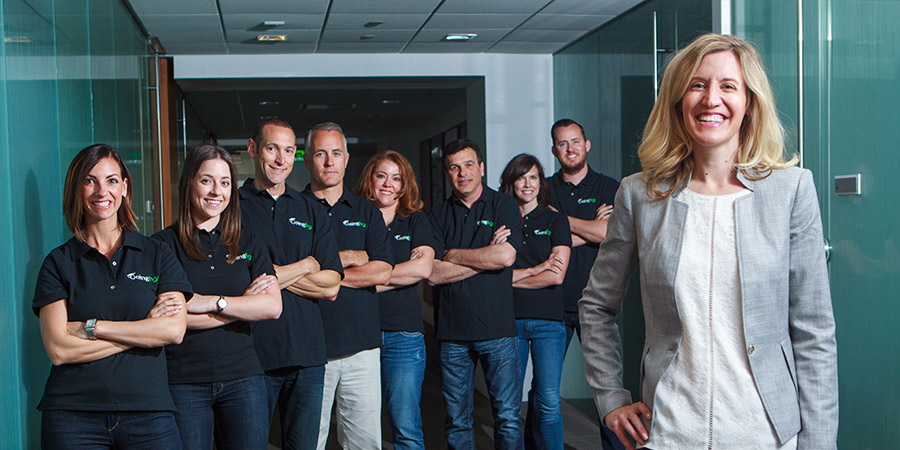Early Action and Early Decisions for College Admissions
There are some important caveats about the early decision and early action processes that you should know.
If your goal is to attend a highly selective college or university, your chances of acceptance can be much higher if you choose to apply through early decision or early action. It is important that you understand the difference between these two options and what it might mean if you are accepted. An important caveat is that you must be pretty certain that you want to attend a school that you apply to via either method. If you apply to a school that offers an early decision process such as Dartmouth or Brown, your acceptance to the school will be binding, meaning you will be unable to later choose to attend a different school.

Going Ivy Can Help You Make the Choice
Going Ivy is comprised of professional educational consultants, counselors and tutors who have graduated from several of the most selective universities in the nation, including Harvard. We work with students from the greater Phoenix metropolitan area, assisting them in applying to their top schools. Whether you are a student at Basis or any other school in the Valley, we can help you to determine whether applying to your dream school via early action or early decision is the right choice for you. We believe that there are some important caveats about both processes that you should know.
Early Decision vs. Early Action: Making the Choice
While not all schools offer early decision, several do. Some of the highly selective institutions that offer early decision admissions include Dartmouth, Boston University, Tufts, Brown and Northwestern. When you apply early decision to a school, you are stating that you will go there if you are accepted. You may only apply to one school through early decision. This means that you must attend regardless of later learning that you have also been accepted to other schools, and it will not matter what type of financial aid packages you might be offered from other institutions. In other words, you must be 100 percent certain that you want to attend the school that you apply to via early decision.
The early action process is offered by a number of selective institutions, and it is not binding. With early action, you get an earlier answer on whether you’ve been admitted, but you are not mandated to attend. You may apply to as many schools as you choose through early action. We generally recommend that students do not submit early applications to more than three schools, however.
Some universities, including Harvard and Notre Dame, offer a restrictive early action process. When you apply through a restrictive early action program, you will not also be able to apply simultaneously to another school that also offers restricted early action, or any other early decision programs for that matter.
Why Choose Early Decision, Restrictive Early Action or Early Action?
When you apply to a school via one of these early admissions processes, you will have a much higher chance of gaining acceptance. For example, 1,999 students applied to Dartmouth via its early decision process for the class of 2021. Out of that much smaller pool of applicants, 550 students were accepted for an acceptance rate of 27.5 percent. By contrast, just 2,092 students were accepted out of the total applicant pool of 20,034 for an overall acceptance rate of 10.4 percent.
Because of the restrictions that are placed on you when you apply early decision or restrictive early action to a school, you must be certain that you want to attend the school that you apply to in this way. It is important to note that you are only allowed to apply to one school by either process, so choosing wisely is important.
Since early action is not binding, it might be a better option for students who are very interested in attending a particular school but are not yet 100 percent sure of their choice. When you apply early action, you are letting the school know that you are very interested in attending. If you are accepted but later choose to attend another school, you can do so.

When You Should Forgo Applying Early
If you know that you will depend on financial aid or are not 100 percent sure that a school is your first choice, applying via early decision is not the best strategy. When you apply early action to several schools, doing so will allow you to compare the financial aid packages that are offered to you by each school that accepts you. It is important to note that the Ivy League schools do offer generous financial aid packages, so if that is your only concern, you might want to talk to your top choice school before the application season starts to learn more about the different types of aid that might be available to you.
While you have a higher chance of getting accepted to a school when you apply by early decision or early action, these are not the best approaches for some students. For instance, if you need to retake your SAT or ACT one final time to boost your score, or you need one more semester of higher grades to increase your chances of admission, you might want to apply by the regular application process instead. And remember, just because schools admit more and more of their students through the early processes, it doesn’t mean they lower their admissions standards for earlier applicants.
Get Help from Going Ivy
At Going Ivy, we can help you to understand the differences between each application type. If you are completely certain that you want to attend a certain school, and you already have a strong academic record, test scores and extracurriculars, we can help you to complete your application on time for the early decision process. We are also able to help you determine whether applying early action or regular action is more appropriate. Our goal is to help you to gain admission to your top-choice school. Call us today to schedule your consultation with our expert consultants.
Clients Accepted To

Our Team
Meet our team of former admissions officers, Ivy League and top school graduates, and tutors.
